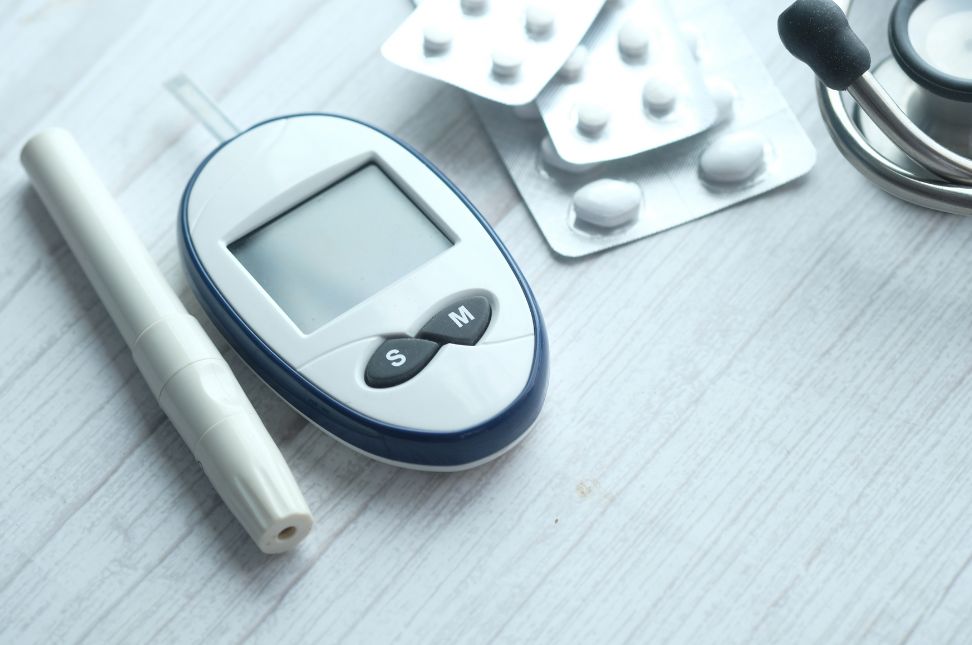Type 2 Diabetes Management is essential for maintaining a healthy life and preventing complications associated with the disease. With proper management, individuals can lead active and fulfilling lives despite their diagnosis. This article will explore the key strategies for effective Type 2 Diabetes Management, focusing on lifestyle changes, medication, monitoring, and support systems.
Understanding Type 2 Diabetes
Type 2 diabetes is a chronic condition characterized by insulin resistance and high blood sugar levels. Unlike Type 1 diabetes, the body still produces insulin, but it doesn’t use it effectively. Type 2 Diabetes Management involves a combination of lifestyle modifications and medical interventions to keep blood sugar levels within a target range.
Lifestyle Changes
- Dietary Modifications: Diet plays a crucial role in Type 2 Diabetes Management. Consuming a balanced diet rich in whole grains, lean proteins, healthy fats, fruits, and vegetables can help control blood sugar levels. Avoiding processed foods, sugary beverages, and high-carb snacks is equally important. Portion control and regular meal times can also contribute to stable blood sugar levels.
- Regular Physical Activity: Exercise is another cornerstone of Type 2 Diabetes Management. Physical activity helps improve insulin sensitivity and lowers blood sugar levels. Aim for at least 150 minutes of moderate-intensity exercise per week, such as brisk walking, swimming, or cycling. Strength training exercises can also be beneficial in maintaining muscle mass and improving metabolic health.
- Weight Management: Maintaining a healthy weight is vital for effective Type 2 Diabetes Management. Even a modest weight loss of 5-10% of your body weight can significantly improve blood sugar control. Combining a healthy diet with regular exercise is the most effective way to achieve and maintain a healthy weight.
Medication and Insulin Therapy
For many individuals, lifestyle changes alone are not enough to manage Type 2 diabetes effectively. Medications may be necessary to achieve optimal blood sugar control.
- Oral Medications: Various oral medications are available for Type 2 Diabetes Management. Metformin is often the first-line treatment and works by reducing glucose production in the liver. Other medications, such as sulfonylureas, DPP-4 inhibitors, and SGLT2 inhibitors, can also be prescribed based on individual needs and responses.
- Insulin Therapy: Some individuals may require insulin therapy as part of their Type 2 Diabetes Management. This is more common in advanced stages of the disease or when other medications are insufficient. Insulin can be administered through injections or an insulin pump, and the dosage and timing are tailored to each individual’s needs.
- Other Injectable Medications: GLP-1 receptor agonists are another class of injectable medications used in Type 2 Diabetes Management. These drugs help lower blood sugar levels and can promote weight loss, making them a valuable option for many patients.
Monitoring Blood Sugar Levels
Regular monitoring of blood sugar levels is crucial for effective Type 2 Diabetes Management. Self-monitoring can help individuals understand how their diet, exercise, and medications affect their blood sugar levels.
- Self-Monitoring of Blood Glucose (SMBG): Using a blood glucose meter, individuals can check their blood sugar levels at home. Keeping a log of these readings can help track patterns and identify areas that need adjustment.
- Continuous Glucose Monitoring (CGM): CGM systems provide real-time blood sugar readings throughout the day and night. This technology can be particularly useful for individuals who require tighter blood sugar control or have difficulty detecting hypoglycemia.
- A1C Testing: The A1C test measures average blood sugar levels over the past two to three months. This test is typically done by a healthcare provider and is a key indicator of overall blood sugar control in Type 2 Diabetes Management.
Support Systems and Education
Effective Type 2 Diabetes Management often requires support from healthcare professionals, family, and community resources.
- Diabetes Education Programs: Enrolling in a diabetes education program can provide valuable information and support. These programs cover topics such as diet, exercise, medication, and coping strategies, helping individuals better manage their condition.
- Healthcare Team: Regular visits to a healthcare provider, such as an endocrinologist or diabetes specialist, are essential for ongoing Type 2 Diabetes Management. These professionals can adjust treatment plans, monitor for complications, and provide guidance on managing the disease.
- Support Groups: Joining a support group can offer emotional support and practical advice from others living with Type 2 diabetes. Sharing experiences and challenges can help individuals feel less isolated and more empowered to manage their condition.
Preventing Complications
Long-term complications of Type 2 diabetes can include cardiovascular disease, nerve damage, kidney disease, eye problems, and foot issues. Effective Type 2 Diabetes Management can significantly reduce the risk of these complications.
- Cardiovascular Health: Managing blood pressure and cholesterol levels is crucial for preventing heart disease and stroke. Regular exercise, a healthy diet, and medications can help maintain cardiovascular health.
- Nerve Damage: Neuropathy, or nerve damage, is a common complication of Type 2 diabetes. Controlling blood sugar levels, maintaining a healthy weight, and managing blood pressure can help prevent or delay neuropathy.
- Kidney Health: Monitoring kidney function through regular check-ups and managing blood sugar and blood pressure levels are vital for preventing diabetic nephropathy.
- Eye Health: Regular eye exams can detect early signs of diabetic retinopathy. Maintaining good blood sugar control and managing blood pressure can help protect vision.
- Foot Care: Proper foot care is essential to prevent infections and ulcers. Regularly checking feet for cuts, blisters, or other issues and keeping them clean and dry can help maintain foot health.
Conclusion
Type 2 Diabetes Management is a multifaceted approach that involves lifestyle changes, medication, monitoring, and support. By adopting a comprehensive management plan, individuals can effectively control their blood sugar levels, reduce the risk of complications, and lead a healthy, active life. With the right tools and support, managing Type 2 diabetes can become a manageable part of everyday life, ensuring long-term health and well-being.




